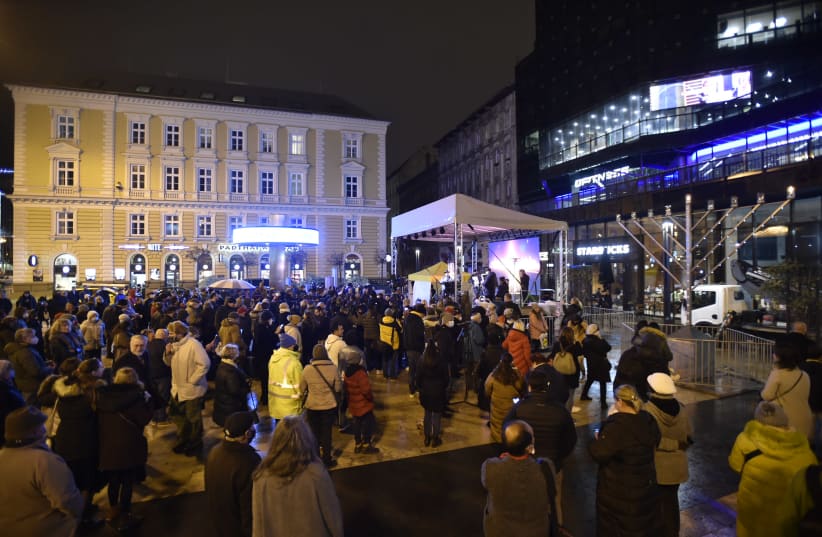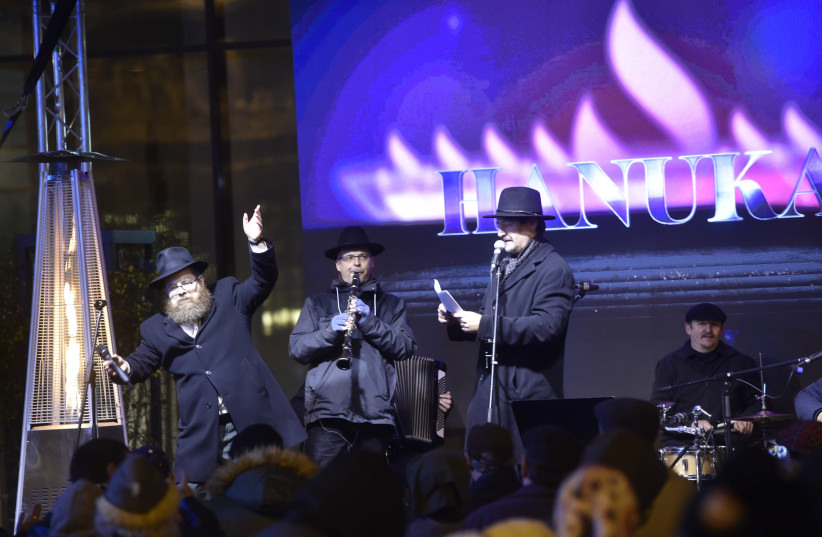As COVID cases rise in the eastern European nation of Hungary and concerns over the new Omicron variant draw COVID-related restrictions back into Hungarian life, the Hungarian Jewish community will once again be holding outdoor candle-lighting ceremonies in celebration of Hanukkah.
Hungary’s Jewish community will continue celebrating the Jewish festival of lights with public candle lighting events held outdoors across Budapest and other cities across the country. Festivities will include a special event at City Park Ice Rink featuring colorful skating shows, trivia games and Hanukkah food, as well as musical performances by the Sabbathsong Klezmer Band.
The COVID-compliant Hanukkah events are organized by the Association of Hungarian Jewish Communities (EMIH) – an affiliate of the worldwide Chabad-Lubavitch movement.
“Last year was the only time in 24 years that Hungarian Jewry could not celebrate Hanukkah as a free and proud community,” said Rabbi Shlomó Köves, Chief Rabbi of EMIH. “The reason was not due to antisemitism or hatred, but because of a pandemic that kept the whole world at bay.”
“Unfortunately, we are still fighting COVID-19 but we will not be deterred, and will celebrate - with the utmost caution – together again this year,” Rabbi Köves declared.
COVID cases are on the rise in Hungary once again, with 27,830 new infections registered in the past 72 hours, as of Friday. Fears over the new Omicron variant discovered last month continue as well. Hungary’s government re-introduced compulsory mask-wearing in enclosed spaces on November 20.
Budapest, Hungary’s capital city, was home to a burgeoning Jewish community before the Holocaust – nearly a quarter of the city’s population was Jewish, according to Encyclopedia Britannica, in 1911 – before many perished in the Holocaust, with survivors immigrating to the United States, Israel and others after the war. The current Jewish population of Hungary numbers 50,000-120,000 people, per a 2012 survey, while the 2011 census showed nearly 11,000 people self-identified as religious Jews.
“The light of the flames that proclaim miracles, freedom and eternal values is returning to the public squares in the cities and the countryside,” Köves said. “After more than a year of being apart, we understand more than ever how important it is to bring communities together, care for each other and share the values that give the hope of the eternal flame, even when we are very alone."

